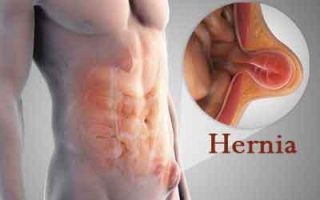- Home
- Editorial
- News
- Practice Guidelines
- Anesthesiology Guidelines
- Cancer Guidelines
- Cardiac Sciences Guidelines
- Critical Care Guidelines
- Dentistry Guidelines
- Dermatology Guidelines
- Diabetes and Endo Guidelines
- Diagnostics Guidelines
- ENT Guidelines
- Featured Practice Guidelines
- Gastroenterology Guidelines
- Geriatrics Guidelines
- Medicine Guidelines
- Nephrology Guidelines
- Neurosciences Guidelines
- Obs and Gynae Guidelines
- Ophthalmology Guidelines
- Orthopaedics Guidelines
- Paediatrics Guidelines
- Psychiatry Guidelines
- Pulmonology Guidelines
- Radiology Guidelines
- Surgery Guidelines
- Urology Guidelines
Inguinal hernia repair linked to Sexual dysfunction, finds study

USA: Sexual dysfunction (SD) and pain with sexual activity (PSA) occur commonly following inguinal hernia repair, according to a recent review published in the Journal of the American College of Surgeons. Going by the findings, they should be included in pre-operative discussions and as standard metrics in reporting outcomes of repair in large cohorts or trials.
Inguinal hernia, one of the most common disorders that affect elderly men which often require corrective surgery. It occurs when an internal part of the body pushes through a weakness in the muscle or surrounding tissue wall. It can appear as a swelling or lump in the groin, or as an enlarged scrotum and may be painful.
This meta-analysis by David I. Soybel, Penn State Hershey College of Medicine and Milton S Hershey Medical Center, Hershey, PA, and colleagues explored the rate of SD and PSA following different surgical and anesthesia types to understand patient risk following inguinal hernia repair.
The researchers performed a systematic review and meta-analysis using PRISMA guidelines to search online databases. Studies published in or before March 1, 2019, that reported on SD and PSA following inguinal hernia repair were identified. Random-effects models were used to calculate pooled estimates of incidence rates of SD and PSA after inguinal hernia repair.
A total of 4,884 patients, from 12 studies were identified. The study-level median age at the time of repair was 52.3 years and study-level median follow-up was 10.5 months.
Key findings of the study include:
- Definitions of SD and PSA focused on completion of intercourse for the former and pain with erection/ejaculation for the latter.
- The overall incidence of new-onset, post-operative SD was 5.3% and of PSA was 9.0%.
- Rates of SD associated with minimally invasive surgical (MIS) and open repair were, respectively, 7.8% and 3.7%; rates of PSA were 7.4% and 12.5%, respectively.
"Urologists should recognize that after inguinal hernia repair sexual dysfunction and pain with sexual activity are not rare because these patients may be referred to them," concluded the authors.
The study, "Pain and Dysfunction with Sexual Activity after Inguinal Hernia Repair: Systematic Review and Meta-Analysis is published in the Journal of the American College of Surgeons.

Disclaimer: This site is primarily intended for healthcare professionals. Any content/information on this website does not replace the advice of medical and/or health professionals and should not be construed as medical/diagnostic advice/endorsement or prescription. Use of this site is subject to our terms of use, privacy policy, advertisement policy. © 2020 Minerva Medical Treatment Pvt Ltd